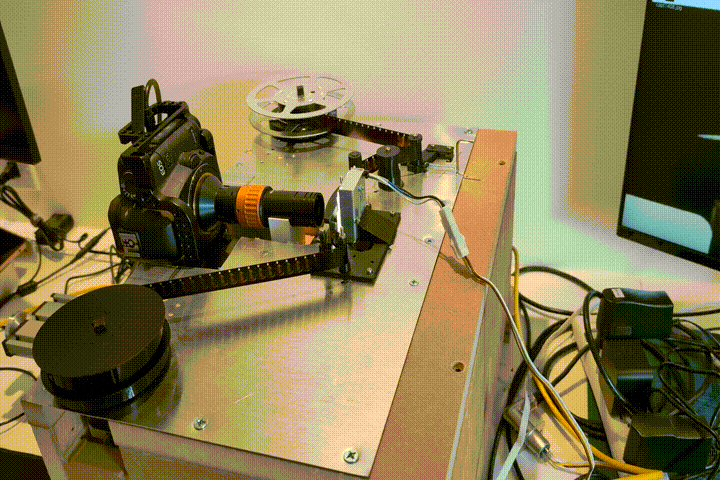Ilya Kavalerov
tscann16

tscann16 is a home-brew high quality film scanner. It uses stepper motors to move optical film like a cassette tape player would, and takes hi res photos of each frame with a macro lens on a DSLR, which is controlled with computer vision running on a Raspberry Pi5. It yields a 5k scan of 16mm film, or 4k scan of 8mm film, and can handle damaged film, warped film, film with damaged or misshapen sprockets, delicate films, and handmade films. Tscann16 offers an alternative to lower quality flickering telecine scans, poor quality consumer scanners with cheap lenses and sensors, and unattainably expensive vintage commercial scanners.
Tscann16 duplicates can be built at low cost, given a lens and a DSLR. Most parts are 3D printed, and stepper motors from a 3D printer drive the film.
Impact
Celluloid film is decomposing and memories and records are being lost because few are familiar with how to even play the film. Attainable transfer methods offer very low quality preservations of the film record, and traditional transfer methods rely on the sprockets for moving the film which warp and become fragile with time. Tscann16 is a recipe to digitize celluloid at a low cost. Any maker can follow the recipe to combine 3d printed parts, stepper motors, a raspberry pi, and a DSLR and lens to scan film at a high commercial quality for 100x less the machine cost.
Tscann16 also enables scanning experimental films which may not be able to run through a projector, or may not have been budgeted to be scanned commercially. Because of its low cost and high quality, it can make the experimental film scene more accessible to audiences (since viewing won’t need to have a physical copy of the film) and more enticing to creators because of the increased reach.
Tscann16 is also inspired by tscann8 by another creator. Tscann16 takes tscann8 beyond HD to 5k, and beyond 8mm film to 16mm film, and emphasizes a high quality transfer (focus control, lighting control, etc).
By Catilya.